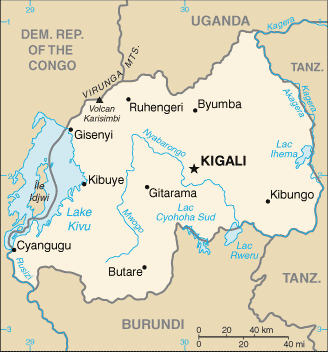Rwanda

The Republic of Rwanda has an estimated population of 10.2 million (UN, 2010). The capital is Kigali. Rwanda has an area of 26,338 sq km (10,169 sq miles). The main languages are Kinyarwanda (official), French (official), English (official), and Swahili.
Africa’s most densely populated country, Rwanda gained independence in 1962 from Belgium. Decades of ethnic tensions between the dominant Tutsi minority and the Hutu majority led to the deterioration of the country. In 1994, Rwanda experienced Africa’s worst genocide. Within 100 days, nearly 800,000 Tutsis and moderate Hutus were brutally murdered and up to 500,000 women were raped.
Rwanda has made considerable progress in promoting gender equality and women’s empowerment. Women currently make up 56 percent of the parliament. However, despite these achievements, many challenges of inequality between men and women still exist.
- Rwanda ratified the Protocol to the African Charter on Human and Peoples' Rights on the Rights of Women in Africa best Known as the Maputo Protocol on the 25th June 2004.
- The Convention on the Elimination of All Forms of Discrimination against Women (CEDAW) was ratified by Rwanda on the 2nd of March 1981.
- Rwanda launched its National Action Plan on United Nations Security Council Resolution 1325 (UNSCR 1325) in May 2010.
- From October 1993 to March 1996, there was a UN peacekeeping mandate in Rwanda: United Nations Assistance Mission for Rwanda (UNAMIR).
